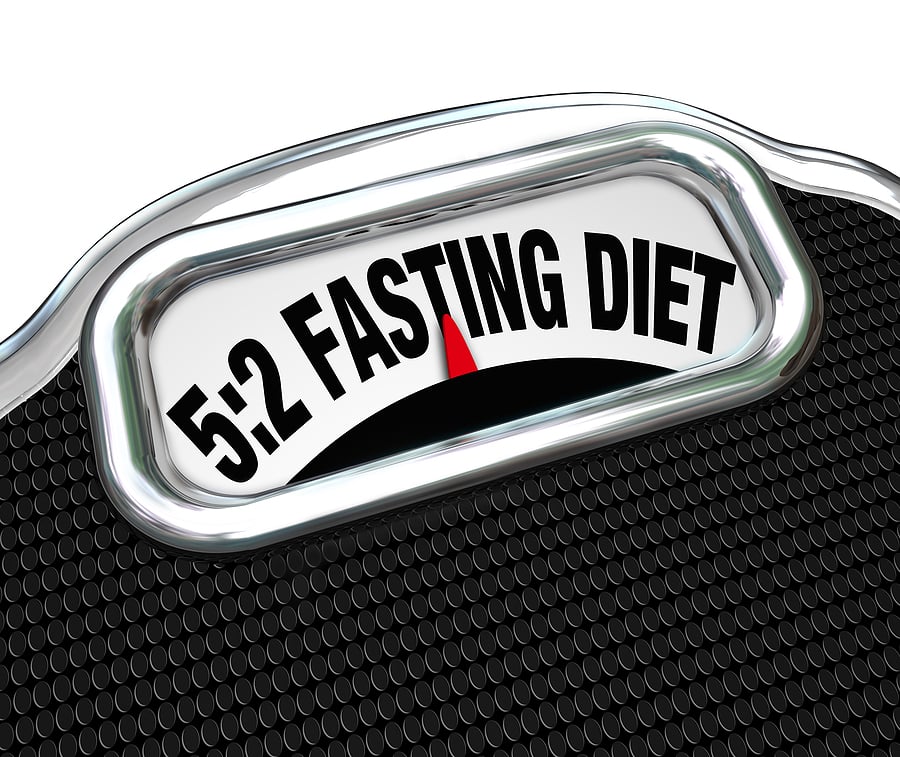Understanding the 5:2 Diet
People diet for all sorts of different reasons; to get ready for an important life event, after a long holiday or period of indulgence after lockdown, or simply as part of their wider efforts to be healthy and stay in shape.
It’s no surprise then that trends in dieting take hold as people look for new and convenient ways to lose weight, using methods that are both effective and realistic. While many diets promise dramatic results, many are not sustainable and have the opposite effect intended when more weight is gained once the diet is over. Finding a solution that strikes the right balance is key, and if you’re looking for a new strategy the 5:2 diet is one worth looking into.
Intermittent fasting – also known as the 5:2 diet – came to the mainstream in early 2013, and in the last year has been one of the most popular and talked about weight loss plans in the UK. Part of its popularity stems from the fact it’s so easy to take up – simply put, the 5:2 is a calorie restricted diet. There are no special foods you need to eat or avoid, and it only requires you to limit what you eat two days of each week.
Finding a diet that’s easy to follow and maintain when life gets in the way is one of the reasons many people find diets like the Atkins difficult. While they may offer short-term results, it’s difficult to mold your lifestyle around a diet that restricts certain foods or has a complicated meal plan. If you’ve found similar problems with diets in the past, the 5:2 might be just the straightforward formula you need to kick-start your weight loss and help you place the focus firmly back on good health.
How it works
The 5:2 diet is one of intermittent fasting. The basics are simple – dieters eat normally for five days out of seven and fast for two each week. On fast days, you should restrict your calories to about 800. On fasting days you can eat whatever you like and at any time of day so long as you don’t exceed the recommended calorie intake.
You can choose which days to fast and which days to eat normally, so if there is a special event coming up you don’t need to feel discouraged or worry that you aren’t following your new regime. Its simplicity is part of the appeal for many people – choosing a diet that fits into your lifestyle is key to staying on track.
Proponents of the diet claim other health benefits as well – early research suggests the diet can also have a positive effect on blood pressure, cholesterol levels and insulin sensitivity as well. As with any weight loss plan it’s important to speak to your GP before beginning or if you have any specific health concerns you’d like to address through your diet.
Useful resources
If you’re thinking of taking up the 5:2 diet you can find some great resources online to support and encourage you along the way. A great place to start is the 5:2 fast diet forum – here you can interact with others who are also working towards their weight loss goals and take advantage of the progress tracker where you can log your weight each week and set new goals.
Thanks to the popularity of the diet you can also read testimonials and first-hand experiences from people who have tried the diet and had success. The Guardian has published its list of feasts for fast days along with some tips and tricks, while the Huffington Post has put together a list of vegetarian recipes perfect for intermittent fasting.
For further inspiration, recipes and tips on how to get started, The Fast 5:2 Diet™ website is another great place to look. The website supports the bestselling book by Dr Michael Mosley and is packed with tools to help you begin your own journey, and also provides some inspiration about the science behind the diet.




















